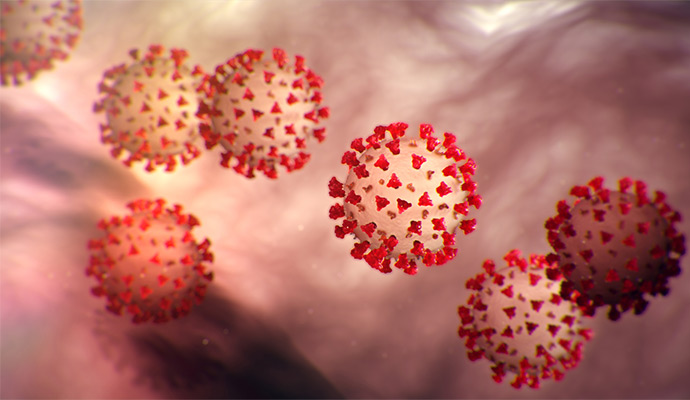Data Analytics Indicates Vaccination Reduces the Risk of Long-COVID
Data analytics reveal that the COVID-19 vaccine can decrease the likelihood of long-COVID symptoms even after infection.

Source: CDC
- According to a study by Arcadia, data analytics shows that current vaccines reduce the risk of long-COVID, even when administered up to 12 weeks after a COVID-19 diagnosis.
Working collaboratively with Leavitt Partners’ COVID-19 Patient Recovery Alliance, the study findings indicated that:
- Patients who received at least one dose of the COVID-19 vaccine were ten times less likely to report two or more long-COVID symptoms than unvaccinated patients.
- Unvaccinated patients who received their first COVID-19 vaccine within four weeks after infection were six times less likely to report multiple long-COVID symptoms.
- Individuals who received their first dose 4-8 weeks after diagnoses were three times less likely to report multiple long-COVID symptoms compared to those who remained unvaccinated.
- Vaccination had a protective effect even when patients received the first doses up to 12 weeks after diagnosis.
Data analytics was performed by Arcadia’s aggregated, de-identified longitudinal patient data asset, which represents the health history of over 150 million patients from thousands of electronic health records and claims data feeds across the United States.
The long-COVD analysis studied COVID-19 infected individuals and vaccination data from February 2020 to May 2021.
“The persistence or emergence of symptoms after an acute infection (i.e., long-COVID) affects as many as one-quarter of all who have been infected by COVID-19, and in many, symptoms can last for months and be debilitating,” Visiting Distinguished Executive at Leavitt Partners and former Member of the White House Coronavirus Task Force, Brett Giroir, MD, said in a press release.
“Arcadia’s data add significantly to the compelling advantages of COVID-19 vaccination. In addition, the unexpected protective effect of vaccination even after infection suggests the presence of biological mechanisms for the development of long-COVID that were previously unsuspected and yet uninvestigated.”
According to Arcadia’s Chief Medical Officer, Richard Parker, MD, the study results make the argument to get the COVID-19 vaccine sooner rather than later to improve population health outcomes related to long-COVID.
“From a clinical perspective, it answers a question many doctors have been asking as to whether or not to defer vaccinating infected patients until they have recovered from the acute illness. Based on the evidence, an unvaccinated person infected with COVID would benefit from immediate vaccination much like patients with rabies and Hepatitis B benefit from those vaccines,” Parker said.
The Arcadia study is part of an ongoing research collaboration with the COVID-19 Patient Recovery Alliance to support patients experiencing long-COVID. Common symptoms of long-COVID include fatigue, cough, shortness of breath, muscle and joint pain, chest pain, loss of taste and smell, difficulties in thinking or concentrating (“brain fog”), depression, anxiety, and abnormal sleep patterns.
According to researchers, long-COVID symptoms can occur even in individuals who experienced mild COVID-19 symptoms.
